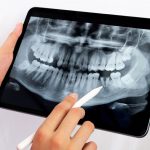 TRU Dental is a health-centered practice. Rosie Jimenez, RHD, and Sharie Sierra, RHD, are the amazing dental hygienists who provide exceptional care.
TRU Dental is a health-centered practice. Rosie Jimenez, RHD, and Sharie Sierra, RHD, are the amazing dental hygienists who provide exceptional care.
Rosie has more than 28 years of experience. She received her dental hygiene degree from the University of New Mexico and was UNM’s first recipient of the “Golden Scaler Award” for her exemplary clinical skills.
Sharie has more than 30 years of experience in dental hygiene and received her degree from the University of New Mexico. She fell in love with dentistry after her own orthodontist offered her a job working in his office.
These ladies are passionate about their connections with patients and servicing their dental needs. They are both experienced in salivary diagnostics and are laser certified. Rosie and Sharie strongly believe in education and a partnership between them and their patients in order to create individualized care for optimal results.
“We provide the same care for our patients that we would want for our own families,” Rosie said.
IS EATING LEMONS BAD FOR YOUR TEETH?
Eating lemons can erode the enamel on your teeth. Enamel is the hardest substance in the body, and it is the outermost layer of the teeth. All acidic foods and beverages can cause damage to this protective layer. Some of these include citrus fruits, tomatoes, sodas, sports drinks, and flavored waters. Damage to the enamel can cause tooth decay and/or sensitivity. We recommend limiting the consumption of highly acidic foods and beverages. Also, one of the simplest and least expensive ways to bring the oral environment to a more neutral/basic pH level is to brush with plain baking soda. Even rinsing with water or chewing sugar-free gum after a meal will help.
WHAT CAN I DO ABOUT DRY MOUTH?
Dry mouth is a common occurrence. It can be brought on by medications, certain diseases/syndromes, radiation treatments, etc. Saliva contains many enzymes that provide protection for our teeth and are also the first part of food digestion. When there is minimal saliva, eating can be uncomfortable and even difficult. Teeth can become brittle and susceptible to decay. Soft tissue can feel like it’s irritated and burning.
There are products that help the mouth feel moist and combat the negative effects on the teeth and soft tissue. Some of these are sprays, rinses, lozenges, and chewing gum that contain xylitol. Sipping on plain, unflavored water throughout the day also helps. Brushing with plain baking soda and using extra fluoride also help prevent the breakdown of enamel.
WHAT IS SALIVARY DIAGNOSTICS?
(This question arises when we are discussing the treatment of gum disease.) Salivary diagnostics can be utilized in several ways. In our office, we use it as a way to determine the specific bacteria that are involved in a patient’s gum disease. Gum disease is an infection, and it is important to treat it as such.
We collect a sample of saliva, and it is analyzed in a lab. A report is created that shows the specific bacteria and how high the levels are. With this information, we can better target a patient’s specific needs and provide appropriate treatment and recommendations. We then collect a second sample approximately eight weeks following active treatment so we can follow up and compare it to the pre-treatment report. This helps us determine if the infection is under control and if any further active treatment is needed or if a patient can move on to the maintenance phase. In some cases, we may recommend a consultation with their medical doctor as well since there is a strong correlation between oral health and overall health.








